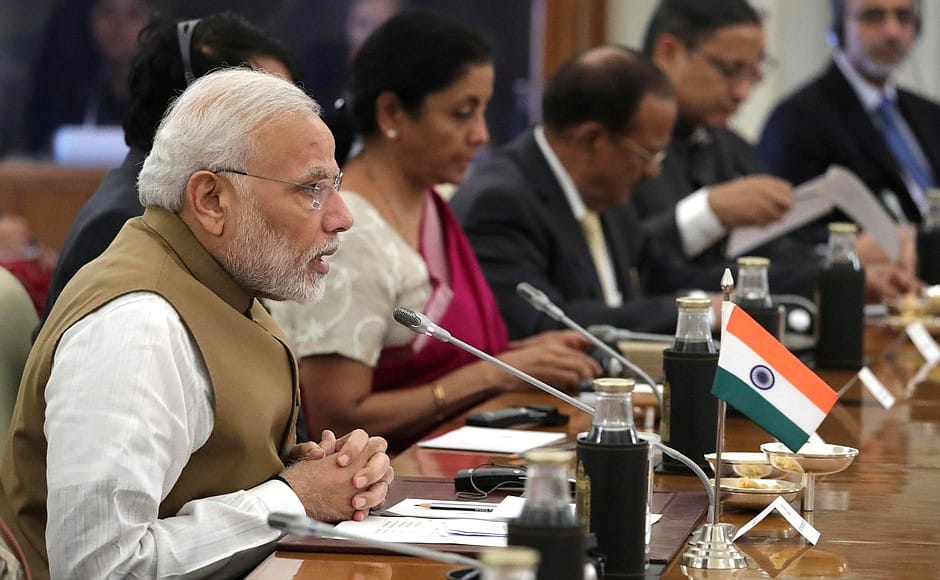
As the Lok Sabha elections draw near and poll pitches get louder it is important to make health a part of the narrative. This was the aim of the health conference organised by the All India Medical Sciences (AIIMS) earlier this week. Much of the discussion was focusing on the government’s flagship healthcare scheme: the Pradhan Mantri Jan Arogya Yojana (PMJAY), better known as ‘Modicare’ or Ayushman Bharat.
The blockbuster health insurance program seeks to provide cover to 10.74 crore economically vulnerable Indians. Thus far, more than 1.2 million Indians are estimated to have been treated under the scheme according to Ayushman Bharat CEO Dr Indhu Bhushan. The initiative, meanwhile, has enjoyed plaudits from international observers including philanthropist Bill Gates and World Health Organization Director General Tedros Adhanom Ghebreyesus. However, at home, health experts are raising doubts.

“Many opined that Ayushman Bharat merely offers a route for the diversion of funds from the public sector to private companies and expressed doubts whether it would learn from the mistakes of similar initiatives in the past”
Doctors speaking at an event hosted by AIIMS cast doubts on the scheme’s potential to benefit the poor. Many opined that Ayushman Bharat merely offers a route for the diversion of funds from the public sector to private companies and expressed doubts whether it would learn from the mistakes of similar initiatives in the past, such as the Rashtriya Swasthya Bima Yojana (RSBY).
“Old wine in a new bottle” was the metaphor used to describe Ayushman Bharat by Dr Vikas Bjapi, a professor at the Centre for Social Medicine and Community Health at Jawaharlal Nehru University. Outlining his misgivings about Ayushman Bharat, Dr Bjapi stated that “apart from lack of desire to commit the required financial resources, the scheme is oblivious and irrespective of the real causes of ill-health of the people, especially the poor.”
Many of the doctors present identified the issue posed by shortfalls in India’s public health system, long dogged by inadequate levels of staffing, resources and funding. “The crux of the problem is in the very first Budget presented by the current government in May 2014, they slashed the budget for health by twenty percent,” noted Dr Shah Alam Khan, an orthopaedics professor at AIIMS. “The only way you can help the poor and the needy is by increasing spending on healthcare in public hospitals and that is not happening.”
Indeed, this year’s Union Budget saw a huge demarcation to fund Ayushman Bharat. Funds for the rest of the health sector, however, saw only incremental increases in their budget compared to last year.

“Lack of investment into India’s public health sector facilitates a reliance on the private sector to execute schemes such as Ayushman Bharat”
The lack of investment into India’s public health sector facilitates a reliance on the private sector to execute schemes such as Ayushman Bharat, suggested Imrana Qadeer of the Council for Social Development. “Neglect of basic healthcare infrastructures under the National Rural Health Mission by drastically curtailing investments, increases the load on secondary and tertiary care institutions and rationalises partnerships with [the] private sector, which [is] waiting to enhance its profits through schemes like RSBY and PMJAY,” she argued. Similarly, AIIMS psychiatry professor Dr Pratap Sharan interpreted the Centre’s involvement of the private sector “an abdication of its basic responsibility”, as private firms are being used in Ayushman Bharat to compensate for the public health system’s inadequacies.
The criticisms about private sector involvement in Ayushman Bharat echoed recent remarks made by Congress Party President, Rahul Gandhi. Addressing doctors in Jaipur last week, Mr Gandhi called Ayushman Bharat “a handout to the fifteen to twenty richest businessmen in India” and said the scheme does not do enough in terms of increasing public outlays for health and education.

“Doctors at AIIMS expressed further concerns at the financing of Ayushman Bharat…[that] the amount earmarked under this year’s Union Budget for the scheme would not be sufficient for patients to be guaranteed a good standard of care at empanelled hospitals”
Mr Gandhi also pledged, at the event, to double the current rate of government expenditure on health to three percent of India’s GDP, if the Indian National Congress is voted into power in May. Current health spend by the public sector is around 1.4 percent of GDP, entailing that most of the expenditure on health in India falls to the patients themselves. This drives many patients into poverty.
Gandhi’s commitment to increasing the government’s health spending was welcomed by experts. Jawarhal Nehru University professor Jayati Ghosh praised his commitment, stating “This is among the few rare occasions when we hear our political leaders talk about health expenditure before elections.”
Doctors at AIIMS expressed further concern at the financing of Ayushman Bharat. Former AIIMS Residents Doctors’ Association chief Dr Harjit Bhatti said the amount earmarked under this year’s Union Budget for the scheme would not be sufficient for patients to be guaranteed a good standard of care at empanelled hospitals. Similar concerns were expressed by economists during closed-door meetings with health ministry officials earlier this year. Indeed, ever since Modicare’s announcement last year, concerns over the adequacy (or lack thereof) of its financing have often been expressed by analysts.
Ayushman Bharat is still in a relatively nascent stage of its existence, but the concerns of experts should not go unnoticed. Healthcare must play a vital role in the political conversation ahead of elections, but it must be remembered that healthcare for all is an issue which transcends party politics. In a country where so many are in need and so few can avail the care they need, it is incumbent upon policymakers to act and – when concerns are expressed by health experts – to listen.

